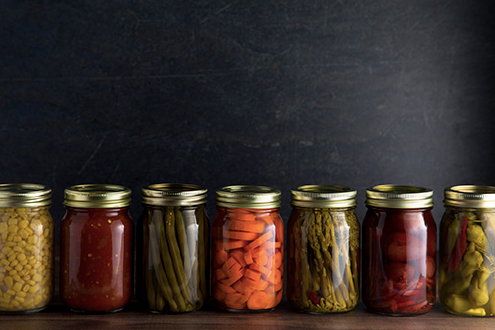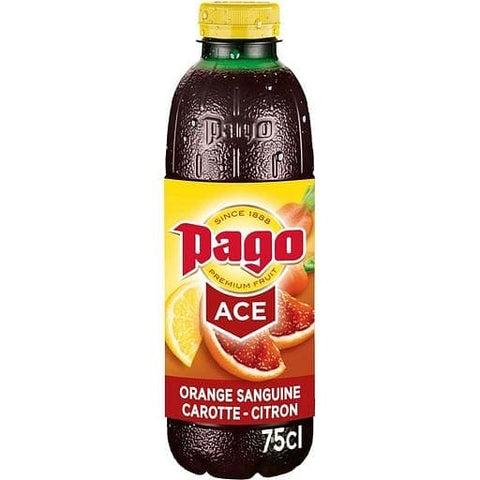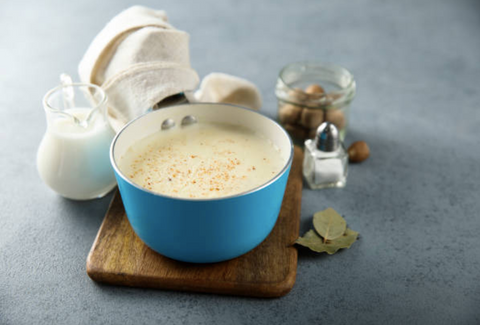French Canned Food
In France, the canned food is a great deal. You can buy any canned food, but usually, it is vegetables and fruits. They are delicious, and you can store them in your pantry. The most famous French canned foods are mushrooms, asparagus, artichoke hearts, green beans, truffles, and black olives. But there are other products you can buy in a tin like fish roe, tuna, mussels, clams, and oysters also, canned fruit like peaches or pears.
When you buy canned foods in France, they will be fresh because they are stored in tins instead of plastic bags and boxes. This way, they will preserve the flavor and the taste for a long time. The bad thing about these foods is that they expire fast and cannot be stored for a long time.
What is the most popular canned food?
The most popular canned foods are vegetables and fruits. However, people also love to eat canned fish, meat, and eggs.
Canned vegetables include peas, asparagus, tomatoes, green beans, artichokes, and mushrooms. The most commonly used fruit for canning is the tomato. Fruits such as pineapple and peaches are also used to make canned products. Some of the most popular canned fish include tuna and salmon, while other canned meats include beef and pork.
Canned foods have been a staple of the American diet for well over 150 years, and today's canned food products are tastier, healthier, and more convenient to serve than ever before. The canning industry has dramatically changed to meet the demands of our constantly evolving society.
It can help keep food safe and nutritious for years beyond its natural shelf life, making them an essential component of everyday life in America. They help ensure that consumers always have access to a variety of fresh, nutritious, and affordable foods year-round — even during times of natural disaster or unforeseen emergencies.
How the French learned to eat canned food?
Canned food is a godsend for time-pressed families and individuals who enjoy convenience. But the French generally don't see it that way. For many French households, canned food is considered a last resort to be eaten only when you have no other choice — an attitude that has been taught for generations.
The story of canned food in France goes back to World War II, when food was scarce, and people were desperate. At the time, canned foods were made with high salt, sugar, and fat to compensate for the lack of taste. In response to the war, a French cook wrote a book called "Comment on nourrit son Mari" (How to Feed Your Husband), which contained recipes using canned foods like artichokes and asparagus. The book was published in 1943 and remains in print today, although it was most popular during the war when it went through several printings.
As the war ended, France went into reconstruction mode and imported more canned goods, viewed as cheap products for the working class. In contrast, frozen foods were prohibitively expensive for most people because they required new refrigerators; even now, many French homes lack adequate freezer space.
Canned food became so associated
Happily, they thought of something else: marketing. They created recipes that used canned food as an ingredient and printed them on the tins. They established a national competition (with a cash prize) for new canned food recipes. They paid chefs to come up with more recipes. They even sent professional chefs out to teach homemakers to cook with cans.
Canned food was marketed as the perfect solution for busy homemakers, who now could serve their families tasty meals without spending hours in the kitchen, using fresh ingredients and cooking from scratch. The promotion worked brilliantly, and within a decade, canned food sales were soaring.
Can you survive on canned food?
We're accustomed to cooking from scratch, but have you ever wondered whether there's any way to survive on only canned food? There are no hard-and-fast rules when it comes to grocery shopping. You might be able to make the most of the varieties and types of things that come in cans, or you may be better off buying fresh produce. But you can adjust your diet to suit your goals.
Canned food has a shelf life to last a while, but you'll want to shop around and make sure cans that seem old haven't lost their flavor or nutritional value. There are some limitations:
- You can only buy certain kinds of canned food in the United States. The Food and Drug Administration restricts the kinds of canned goods that can be imported and sold here because some contain sodium levels that exceed federal standards. (In the case of low-sodium products, this applies only to those produced by companies that the FDA has approved.)
- Several countries import canned food from the United States and sell it at lower prices; however, they don't have FDA approval. If you're trying to follow a specific low-sodium diet, check with your doctor before purchasing canned foods from abroad.
Are canned meals healthy?
This question cannot be answered in isolation. It depends on the specific type of meal. For example, a can of organic soup is probably healthier than a can of processed tomato sauce. However, there are hidden dangers to many commercially canned meals. The cans themselves could contain toxic chemicals called biphenyl-A (BPA). This chemical is known to cause disruptions to the human endocrine system and has been linked to certain types of cancer. Fortunately, more and more manufacturers are switching to BPA-free cans, which don't pose a health risk.
The canned food aisle may seem like a minefield if you're trying to eat healthily. But a few smart choices can make your meals healthier, cheaper, and easier to prepare.
Here are some tips for navigating the cans:
- Read labels. If sodium is listed as one of the first four ingredients, put it back. Ditto for any ingredient you can't pronounce or if there are more than five grams of sugar per serving. And look for foods that list vegetables and whole grains first.
- Add beans to salads and soups. Canned beans are an excellent source of protein and fiber. Rinse them before eating, or buy low-sodium varieties, to reduce their sodium content by 41 percent.

Are canned vegetables as good as fresh ones?
Are canned vegetables as good for you as fresh vegetables? Are they better or worse than frozen? While canned foods can be high in sodium, that doesn't mean you need to shy away from them altogether. Canned foods can be a great way to ensure you're getting a variety of nutrients into your diet.
When it comes to some nutrients, such as lycopene and beta-carotene, the processing involved in canning increases the amount our bodies can absorb. There are many benefits of eating canned vegetables. This is especially true during the winter months, when it may be challenging to find fresh vegetables that are locally grown.
The nutritional value of canned vegetables is generally equal to or greater than that of fresh or frozen vegetables. When properly packaged, canned goods are also more nutritious than fresh because they're processed at their peak and are picked at their peak ripeness
How does canned food stay fresh?
One of the most common questions we get here at General Canning is how long canned food can stay on the shelf. The simple answer is that canned food will last for years if properly stored. But as with most things in life, there are some caveats. Canned food should be stored in a cool, dry place. Do not store your canned food in a damp basement or a furnace. Generally speaking, any location between 50 and 70 degrees Fahrenheit (10 to 21 degrees Celsius) will do nicely.
The second caveat is that you need to store it so it won't get banged around or punctured by something before you use it. For example, storing your cans in the garage next to your lawnmower will not preserve their shelf life as well as putting them in your pantry would.
Scientists at the USDA and FDA have determined that canned foods retain their freshness for two to five years when stored under optimal conditions. Most canned goods will stay fresh for one year past the expiration date stamped on their packaging.
Canned food provides a convenient and inexpensive way to create meals, but keeping your canned foods fresh can be tricky. If you have opened a food can and didn't use the entire contents, you need to store it properly to prevent spoilage.
Storing Canned Food
Place the remaining food in an airtight container or wrap it with plastic wrap and aluminum foil. In either case, the containers or wraps should fit tightly against the surface of the food so that no air can get inside. Foil is often recommended for storage because it does not absorb the odors of the foods, whereas plastic containers may retain smells for long periods.
Refrigeration
Refrigerate leftover canned foods after opening them. When possible, place them on a shelf toward the rear of the refrigerator at a temperature below 40 degrees Fahrenheit. This helps prevent bacterial growth. If there are any liquids in the container, pour them off before refrigerating them since liquids freeze faster than solids.
Freezing Canned Food
Freeze leftover canned food in a separate container if you don't plan on consuming it within three days. Place the food in a freezer-safe container, such as a freezer bag or rigid plastic container with an airtight seal.
Can you cook canned food in the can?
Yes and no, some products that manufacturers recommend heating in the can, usually because they're more delicate products, like beans. But there's no need to heat most canned foods. Heating them in the can adds nothing and risks leaching BPA and other harmful chemicals into your food.
There are, however, exceptions: Some cans have instructions to heat the food in the can. For example, B&M Baked Beans recommends this. You can do this with many of the new BPA-free cans out there. However, you should never put a metal can into a microwave oven. Instead, transfer the contents of a metal can into a microwave-safe container (like a ceramic bowl) before microwaving.
You can cook canned food in the can. You need to be careful of food safety because the cans are usually lined with a chemical that could leach into your food if you don't take proper precautions. You can cook anything in a can; first, you have to remove it from the can. You need to avoid heating the can because that releases BPA and other chemicals.
If you're going to remove the contents from the can and heat them on a stove or in a microwave oven, then you should probably open the can in the first place and place the contents into a saucepan or bowl for cooking.
Can any food be canned?
The first thing you need to know is that any food can be canned. What's more, all foods can be canned safely in a boiling water bath. You need to understand the unique requirements for some foods, like low-acid and acidified foods, which must be processed in a pressure canner to destroy bacteria.
Next, know that not all foods should be canned. Some foods do not taste good when you open the jar after months or years of storage. It could be because there is not enough acidity in the food; it could be because it needs pressure canning, or it could simply be that the flavor isn't preserved well by home canning methods.
Don't waste your time and energy on these foods:
- Bananas
- Blackberries
- Buttermilk
- Cantaloupe
- Celery
- Chives
- Coconut (fresh)
- Corn (fresh)
- Eggplant
- Garlic (fresh)
- Grapes (white/green)
- Green/wax beans (raw pack only) – recommended by NCHFP but not USDA
Why canned food is cheap
If you're thinking about eating more canned foods to save money, you might want to think again. After all, canned foods are usually cheaper than frozen or fresh foods. Well, yes and no. Canned foods can be worth the extra cost if they're better for your health or if they're a convenient way to get more fruits and vegetables on the table. But if you buy canned foods just because you think they're cheaper than buying fresh or frozen, you might spend more money than you need to.
Why are cans cheap?
Can tend to be cheaper than other packaging types because they're convenient and manufacturers don't have to worry about spoilage while their products sit on shelves waiting to be sold. What's more, cans are cheap and easy to transport. They also use less packaging material — a 12-ounce can of soup takes up less space in a truck full of groceries than a 24-ounce carton of soup.
But there are some drawbacks:
- Some cans contain large amounts of sodium. If you need to limit your sodium intake due to high blood pressure or other health conditions, it might be better to spend the extra money on low-sodium products — even
French canned food brands.
France is known for its savory foods and excellent wines, but it has an underappreciated tradition of canned goods. Case in point: Thon en Meurette. Canned tuna with a sweet-and-sour sauce made from pinot noir and onions, this affordable high-end delicacy is one of the best uses for tuna outside of sushi or ceviche.
The French have long been leaders in the art of canning because they understand that a small amount of time and effort can transform something simple into something special.
We've compiled a list to help you enjoy French cuisine at its finest. The following selections are staples in European pantries and should be in yours.
Here are some French canned food brands:
- Del Monte
- Green Giant
- Libby's
- S&W
- Freshlike




